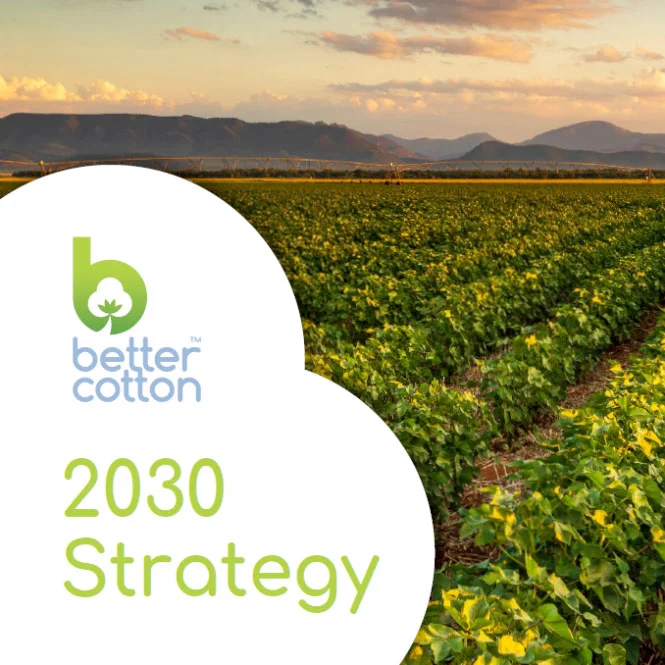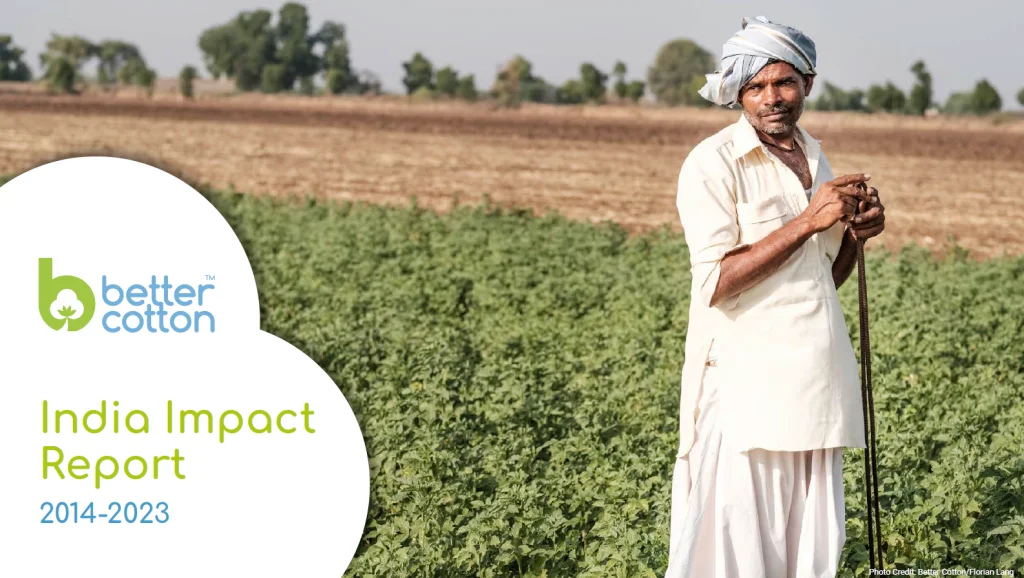- Who we are
- What we do
In just over 10 years we have become the world’s largest cotton sustainability programme. Our mission: to help cotton communities survive and thrive, while protecting and restoring the environment.
- Where we grow
Better Cotton is grown in 22 countries around the world and accounts for 22% of global cotton production. In the 2022-23 cotton season, 2.13 million licensed Better Cotton Farmers grew 5.47 million tonnes of Better Cotton.
- Our impact
- Membership
Today Better Cotton has more than 2,700 members, reflecting the breadth and diversity of the industry. Members of a global community that understands the mutual benefits of sustainable cotton farming. The moment you join, you become part of this too.
- Associate Membership
- Civil Society Membership
- Producer Organisation Membership
- Retailer and Brand Membership
- Supplier and Manufacturer Membership
- Find Members
- Member Monitoring
- Better Cotton Platform
- myBetterCotton
- Resources – Better Cotton Conference 2022
- Complaints
- Whistleblowing
- Safeguarding
- Get Involved in the Better Cotton Programme
- Thank you for contacting us
- Better Cotton’s Data Privacy Policy
- Log in
- Members’ Area
- Request for Proposals
- Better Cotton Cookie Policy
- Web Reference
- Measuring Cotton Consumption
- How to Implement the Chain of Custody Standard
- Resources – Better Cotton Conference 2023
- Certification Bodies Old
- Latest
- Sourcing
- Latest
The founding premise of Better Cotton is that a healthy sustainable future for cotton and the people that farm it is in the interests of everyone connected with it.
Let us help you find what you’re looking for
Results for {phrase} ({results_count} of {results_count_total})Displaying {results_count} results of {results_count_total}
Better Cotton has today shared the findings of an independent audit which investigated allegations relating to cotton production in Brazil’s Matopiba region and sets out the steps it is taking in response.
The allegations made by Earthsight, a non-profit organisation, relate to two companies that own or manage a number of farms in the state of Bahia and cover illegal deforestation, green land grabbing and coercion of local communities, amongst other issues.
The audit report, produced by independent global advisory firm Peterson, has confirmed that three out of the farms mentioned were licensed to sell Better Cotton during the timeframes specified in Earthsight’s report. These three farms were not in breach of the Better Cotton Standard.
In Brazil, Better Cotton’s strategic partner is the Brazil Cotton Growers’ Association (ABRAPA) and its Responsible Brazilian Cotton (ABR) programme is recognised as equivalent to Better Cotton’s standard.
Some of the challenges reflect the complexity of Brazil’s agricultural sector and demonstrate the need for multistakeholder dialogue to ensure effective oversight and information sharing across agencies to positively impact key environmental and social issues.
We welcome the scrutiny of organisations such as Earthsight as they help to shine a spotlight on areas where both farm and regulatory oversight need to improve. Better Cotton’s mission is to promote more sustainable agricultural practices globally, helping cotton communities survive and thrive while protecting and restoring the environment.
Key Findings & Next Steps
The independent Peterson audit found no relation between the accusations by Earthsight relating to community impact and the three farms that produce Better Cotton, and therefore no breach of standards. Nevertheless, the independent auditor is engaging the communities in question with the view to understanding and addressing their concerns.
With regards to violations of land rights, the audit found that the farms in question are fully registered with the Rural Environmental Registry (CAR), a self-declaratory database of rural properties, and therefore comply with the ABR standard. The farms are also certified with IBAMA, the Brazilian Institute of the Environment and Renewable Natural Resources, so the use and conversion of land for cotton farming on these farms complies with national legislation and meets the ABR standard. Better Cotton cannot comment on the ongoing legal investigations into landowners.
In relation to deforestation, the report refers to fines relating to years before the farms started working with Better Cotton. There are no areas currently under embargo.
There is no evidence of the illegal spraying of pesticides as alleged. The embargos on spraying were lifted in 2018 so the aerial sprays highlighted in the report were legal. The complaint did not provide objective evidence the farms applied pesticides in violation of legal distancing.
The auditor’s report says that the ABR standard should evolve to become more focused on issues such as community needs and cultural values of lands, and to ensure that land conversion does not occur in areas of High Conservation Value. In addition, the report finds that the ABR criteria should be strengthened to ensure that producers are not engaged in acts of corruption.
Its recommendations to further strengthen the ABR programme’s indicators and assessment guidance correlated to land use law and change, biodiversity conservation, and community impact are aligned with the latest iteration of Better Cotton’s standard (v.3.0) which is being adopted in Brazil in time for the 2024/25 growing season.
Alan McClay added: “Our latest version of the Better Cotton Standard is the toughest yet and demonstrates that we are committed to bringing the cotton industry on a journey of continuous improvement. This is designed to set out our core requirements for acceptable farm-level practice.”
Better Cotton has a due diligence process to review the criteria and procedures used by each of its benchmark partners in the countries where it works with a local association. Better Cotton is also actively considering carrying out direct due diligence on large corporate owners of cotton farms given the wider impact of these businesses.
A further component of Better Cotton’s response will be to encourage and support additional engagement across commodity stakeholder groups, standards bodies and certification schemes to remedy the adverse impacts associated with cotton production.
Better Cotton has been actively working with stakeholders across the cotton value chain over the last three years to create an inclusive and scalable approach to traceability. This effort has enabled the tracking of cotton through various stages, providing more granular visibility into where cotton is grown. By 2025, we are working to offer traceability, not just at a country level, but to the gin which is only one step removed from the farms.
To read the summary of findings of the independent audit, use the link below.
PDF
178.96 KB


